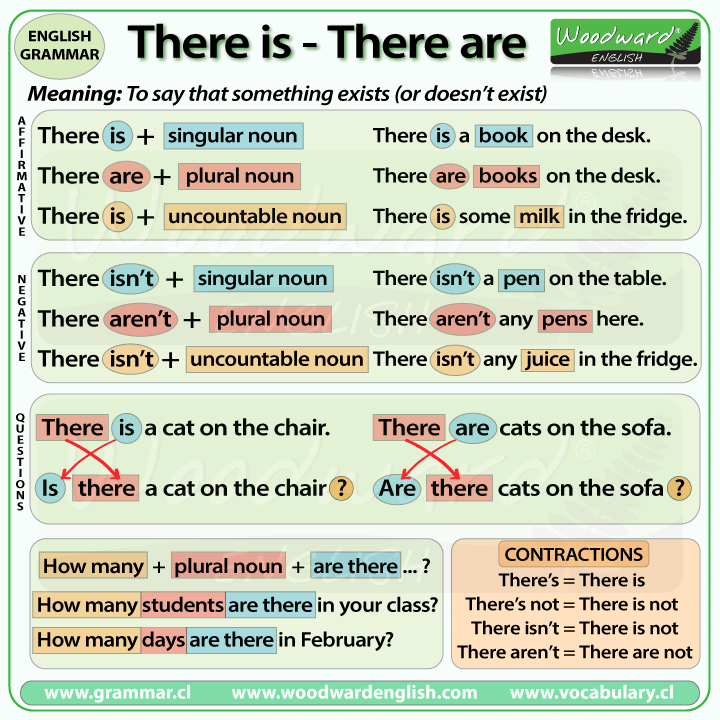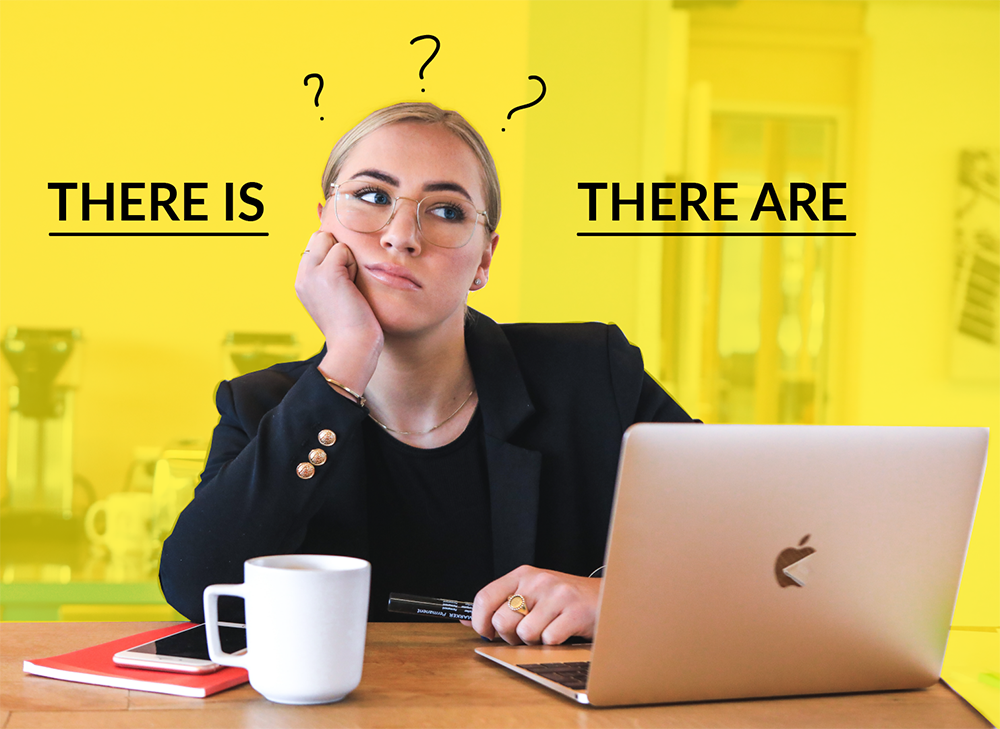Porozmawiajmy o jednej z najbardziej podstawowych konstrukcji w języku angielskim, czyli there is / there are. Czy wiesz jak powiedzieć po angielsku “w moim pokoju jest kanapa”?
Powiemy to tak: There is a sofa in my room.
There is / There are
Używamy tej konstrukcji, aby powiedzieć, że w danym miejscu coś jest lub czegoś nie ma.
- There is a desk near the window. – Jest biurko blisko okna.
- There aren’t any flowers in this room. – W tym pokoju nie ma żadnych kwiatów.
W związku z tym, że formuła to po prostu there + to be, tej konstrukcji możemy używać w czasie przeszłym, teraźniejszym i przyszłym. Należy tylko odpowiednio odmienić czasownik.
- Present Simple: there is / there are
- Past Simple: there was / there were
- Future Simple: there will be
The Present
Zdania twierdzące: There is/are + podmiot + miejsce
- There is a chair in my room. – W moim pokoju jest krzesło.
- There are people in this building. – W tym budynku są ludzie.
Zdania przeczące: There is/are + not + podmiot + miejsce
- There is not a dog in this room. – Nie ma psa w tym pokoju.
- There are not any chairs here. – Nie ma tutaj żadnych krzeseł.
Pytania: Is/are + there + podmiot + miejsce?
- Is there a dog in this room? – Czy w tym pokoju jest pies?
- Are there any chairs here? – Czy są tu jakieś krzesła?

The Past
Spójrzmy teraz na tą konstrukcję w czasie Past Simple, czyli there was / there were.
Zasady są dokładnie takie same – zamieniamy jedynie is/are na was/were.
|
Present |
Past |
|
There is a cat on my bed |
There was a cat on my bed |
|
There isn’t any milk |
There wasn’t any milk |
|
Is there an orange in the fridge? |
Was there an orange in the fridge? |
|
No, there isn’t |
No, there wasn’t |
|
There are several pens in my bag |
There were several pens in my bag |
|
There aren’t any children in the room |
There weren’t any children in the room |
|
How many people are there? |
How many people were there? |
|
Yes, there are |
Yes, there were |
The Future
W przypadku mówienia o przyszłości sytuacja jest zasadniczo najprostsza.
Zamieniamy is/are na will be w każdym przypadku. Sounds easy, right?
|
Form |
Example |
|
|
+ |
There will be + what + where |
There will be many people at that party |
|
- |
There will not (= won’t) be + what + where |
There won’t be any alcohol, though |
|
? |
Will there be + what + where? How many/much + what will there be + where? |
Will there be cute girls? How much food will there be at the party? |
|
Short answer |
Yes, there will No, there won’t |
|
Wypełnij luki przy użyciu there is/are w czasie teraźniejszym. Pamiętaj o konstrukcji pytań.
- There’s a beach down here.
- There are four girls and two boys in her family.
- ________ a train to Manchester?
- ________ a new disco near the college.
- ________ a good restaurant in this street?
- ________ two hospitals in town.
- ________ a lot of children in the pool?
- ________ three families in that house.
- ________ a television in that flat?
- ________ a big grey cloud over there.
Jeśli chcesz poćwiczyć więcej:
GOOD LUCK!





